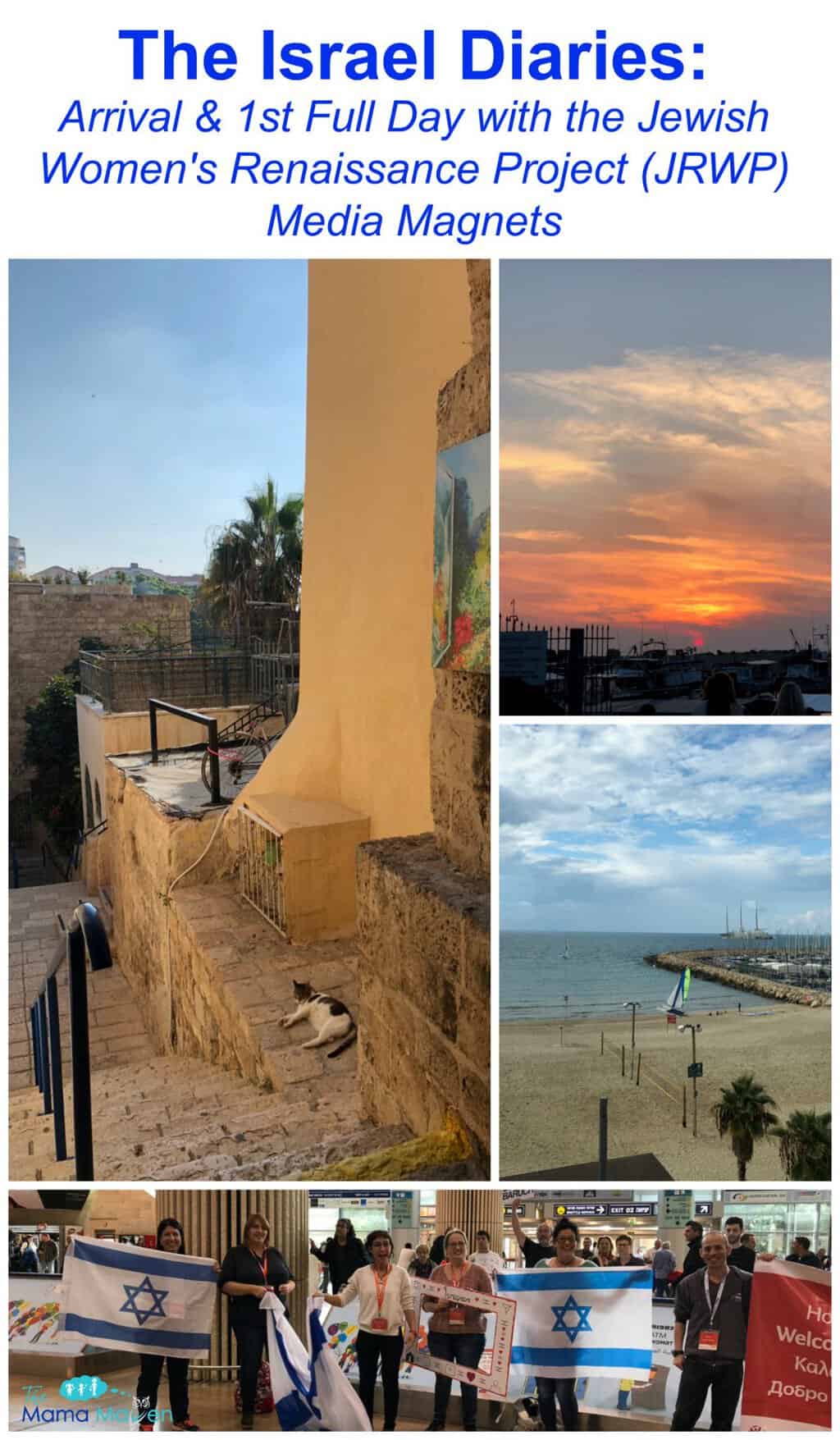By Mr. Mama Maven
I have had wonderful vacations sitting on the beach, exploring cities or going sightseeing. Yet every once in a while I want to try something that is a little out of the ordinary or really just speaks to me. The solution turned out to be having a vacation where I am literally getting my hands dirty. Volunteering Vacations: What It’s Like to Work on an Archaeological Dig

When I was in college I went on an archaeological dig at a Byzantine outpost on the border of Israel and Egypt. It was a pretty amazing experience and since I am not a professional archaeologist I figured it was also a once in a lifetime experience. About seven years later, I was poking around the internet (and I mean poking because it was over a dial-up connection). I found a field school where I could stay in a small village in Calabria (the toe of Italy) and work on a pre-Roman excavation.
This was an extremely rich experience. I not only discovered finds that were 2,200 years old but also got to live and work in a picturesque village. There was an old town square to stroll around and a mafia hilltop villa to stay far away from. There was also plenty of Southern Italian food and wine. Then on the days off I still had some time on the beach by the Ionian Sea and a mini vacation site seeing in Sicily.
I enjoyed the trip so much that the next year I enrolled in a four-week field school with the University of Malta. I lived in an apartment in the medieval walled city of Valetta and worked on a site that had been constantly inhabited for 4,500 years. It was a great international team and we uncovered fascinating pieces from the Roman and Carthaginian periods. Towards the end of the dig, we built a scaffolding around an ancient well and I was lowered into it to excavate materials. Again, I had amazing leisure time on the side, going to Malta’s beaches and exploring the cities on Malta and Gozo.
After going to Malta, I had a few wonderful life-changing events, namely my engagement, wedding and the birth of our first child. While he was still a baby our new family went to Menorca, Spain along with my parents. Instead of staying in the accommodations with the other volunteers, our family stayed in our own hotel. We probably should have done a little better job researching where we stayed because it was loaded with very loud raucous British partygoers but the concept of getting our own place was good. While I was able to work on the excavation, our after-hours activities were more family oriented. We splashed around with our sweet baby and hopped into the family rental car to cruise around the island.
 This year I was blessed with the Mama Maven giving me another shot at a dig. Now with three kids, we figured having them stay in a remote location for two weeks could turn into an absolute disaster. Instead, she let me go on the adventure alone. I selected a Bronze Age (3,200 year old) dig in southern Bulgaria at a site called Bresto. The excavation was coordinated by the Balkan Heritage Foundation. It was an extremely well organized, informative and exciting project. The site was located just outside the town of Banya whose streets were like walking back in time. There were horse-drawn carts careening down the roads, giant stork nests on chimneys and full meals for three dollars. The word Banya means bath as the town was built over hot mineral springs that were naturally 52 degrees Celsius (125 degrees Fahrenheit). You could see the steam rising from streams in town.
This year I was blessed with the Mama Maven giving me another shot at a dig. Now with three kids, we figured having them stay in a remote location for two weeks could turn into an absolute disaster. Instead, she let me go on the adventure alone. I selected a Bronze Age (3,200 year old) dig in southern Bulgaria at a site called Bresto. The excavation was coordinated by the Balkan Heritage Foundation. It was an extremely well organized, informative and exciting project. The site was located just outside the town of Banya whose streets were like walking back in time. There were horse-drawn carts careening down the roads, giant stork nests on chimneys and full meals for three dollars. The word Banya means bath as the town was built over hot mineral springs that were naturally 52 degrees Celsius (125 degrees Fahrenheit). You could see the steam rising from streams in town.
Being 25 years older than the first time I participated in a dig, I opted to stay in a spa. The Balkan Heritage Foundation arranged for me to stay in the Aquilon Hotel which had an indoor pool, an outdoor pool, and a Jacuzzi. They actually had to cool off the water so that guests could swim in it and do not have to add chlorine to the water due to the minerals.
While the courses at the other field schools were very good, particularly the University of Malta, the Field School at Bresto went beyond the general context of the time period and place. We had great discussions about theoretical matters. The professors also personally spent time with the field school attendees. We ate meals together and celebrated together. It was a very rich experience.
 The excavation produced truly outstanding finds. I would have loved to have gone into detail but posting information about finds before they are officially published can be problematic. However, I can discuss some of the excursions that we went on. We went on an organized trip south to the Greece, where we started with a guided tour of ancient Philippi. Philippi was a massive archaeological park, founded by Alexander the Great’s father, Philip of Macedon. It continued to be settled during the Hellenistic, Roman and Byzantine periods and had fantastic remains.
The excavation produced truly outstanding finds. I would have loved to have gone into detail but posting information about finds before they are officially published can be problematic. However, I can discuss some of the excursions that we went on. We went on an organized trip south to the Greece, where we started with a guided tour of ancient Philippi. Philippi was a massive archaeological park, founded by Alexander the Great’s father, Philip of Macedon. It continued to be settled during the Hellenistic, Roman and Byzantine periods and had fantastic remains.

We then continued south to the coastal city of Kavalla, which has an incredible aqueduct and city wall in its own right. Plus Kavalla had excellent food and easy to reach beaches. It was very easy to walk around and the nightlife was very lively. The only thing I would caution is that the entire city really shuts down on Sunday, so if you need to buy anything other than food at a restaurant get it done before Sunday rolls around.
The next excursion was way off the agenda. One of the civilizations that impacted the archaeological site apparently buried their dead elsewhere and a second civilization only used it for ritualistic purposes. Two of us volunteered to explore other areas nearby to see if we could find other evidence of these people. We were granted permission and we wandered up the surrounding hillsides. After getting torn up by thistles, thorns and other nasty things, we actually saw a low masonry wall. It was made of dry worked blocks. I dug with my trowel my entire arm length down and still could not find the bottom. That was very weird but then we found more and more walls. Some had semi-circles built into the wall and I wondered if archers used to stand guard there. They went the entire width of the ridge.
We reported our discovery to one of the directors and because it was dry masonry it was deduced that it was not Roman construction and could be anything from Medieval to ancient. The next day the director went out to the site. To our disappointment, he said that it was a World War II fortification. That was too bad. I was getting very excited about finding a lost city. I was so excited that I went back later and tried digging deeper down in case the Bulgarian militia built the walls on top of an earlier wall but I was not successful.
 On the last day of the program, we had an organized trip to the Rila Monastery. The first building of the monastery was built in 1339 and it still houses an order of monks today. It had beautiful Eastern Orthodox artwork and a long gallery and courtyard. I think the most amazing part was the original bell tower which had twisting narrow stone staircases and fantastic views of the countryside.
On the last day of the program, we had an organized trip to the Rila Monastery. The first building of the monastery was built in 1339 and it still houses an order of monks today. It had beautiful Eastern Orthodox artwork and a long gallery and courtyard. I think the most amazing part was the original bell tower which had twisting narrow stone staircases and fantastic views of the countryside. 
 There was a nearby cave where a local hermit saint lived and I would have loved to have seen it but I had to catch a bus to Sofia in order to make my flight back home. I guess it’s nice to have something to look forward to if I ever return.
There was a nearby cave where a local hermit saint lived and I would have loved to have seen it but I had to catch a bus to Sofia in order to make my flight back home. I guess it’s nice to have something to look forward to if I ever return.
Did you ever do a volunteering vacation?




Hello,
Your article was amazing and spoke to me, this is something I really want to do. Could you send me more information on how to get started. I am finishing my degree in Anthropology and am really excited to begin some archeology digs. We are visiting Crete next week and are taking some tours around the old ruins around the Island.
Thanks again,
Mindy Lebb
That sounds amazing. Let me ask my husband, as he’s the expert in this.